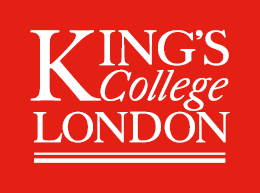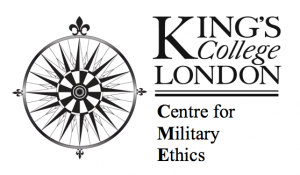I'm currently the Principal Investigator for the "Contractors in Great Power Competition: Challenging World Order in an Age of Privatization" project via support awarded by the International Studies Association:
National defense activities are no longer within the exclusive purview of state militaries and domestic security forces. Our cross-disciplinary working group will investigate the use of contractors in great power competition. This practice shapes conflicts across the globe, yet the growth of un(der)regulated entities such as Russia’s Wagner Group, Turkiye’s SADAT, Chinese security entities, and other emerging actors has yet to be sufficiently explored. The demand for such services is rapidly expanding, with the private sector becoming an instrument of state coercion. Existing scholarship focuses on U.S. practices, but the contemporary challenges arising from contractors require concerted and collaborative research.
National defense activities are no longer within the exclusive purview of state militaries and domestic security forces. Our cross-disciplinary working group will investigate the use of contractors in great power competition. This practice shapes conflicts across the globe, yet the growth of un(der)regulated entities such as Russia’s Wagner Group, Turkiye’s SADAT, Chinese security entities, and other emerging actors has yet to be sufficiently explored. The demand for such services is rapidly expanding, with the private sector becoming an instrument of state coercion. Existing scholarship focuses on U.S. practices, but the contemporary challenges arising from contractors require concerted and collaborative research.
Research Interests
- U.S. Contingency Contracting - Non-State Security Assistance Actors - Peace Support/Stabilization
- Civil-Military Relations - Security Sector Reform - Professional Military Education
- Military and Society - U.S. Defense and Foreign Policy - Public Education and National Security
- Civil-Military Relations - Security Sector Reform - Professional Military Education
- Military and Society - U.S. Defense and Foreign Policy - Public Education and National Security
|
I received my PhD from King's College London's Defence Studies Department, studying under the supervision of Dr. Christopher Kinsey. My research question was as follows:
“Principal-Agent Problems: USG Use of Contractors to Build Partner National Military Capacity” Although private contracting firms contribute to building partner military capacity and are a useful foreign policy tool, the impact that these non-state actors have must be taken into consideration to avoid weakening the perception of the sponsoring (in this case, the United States’) government’s legitimacy. Therefore, the question must be asked, “Why does the USG often turn to private firms and individuals in order to deliver training and advisory services to build the capacity of partner militaries, rather than relying on its own military personnel?” This question is particularly salient given the USG’s use of contractors post-9/11 to augment security force assistance efforts, first in the CENTCOM AOR, and later expanding to other AORs relevant to prosecuting the Global War on Terror (GWoT) by building the military capabilities of partner nations. This project examines the phenomenon through case studies across the AFRICOM AOR. In order to understand the incentives that the USG has to contract out such work that was previously under the purview of the U.S. military, this project applies Principal-Agent (P-A) theory to its question of why U.S. policymakers use contractors to build partner capacity. The central focus of P-A theory is the process of structuring incentives for the agent, through which the principal can make decisions that affect the incentives of the agent to act in one way or another. In addressing P-A’s application to the use of contractors, this project frames the use of contractors as surrogates. Given that contingency contracting firms do not have interests that are identical to the USG, the more that the USG relies on contracting firms to execute its policies, the more vulnerable the USG becomes to having firms pursue their own interests when they diverge from those of the USG. This misalignment of interests between the contracting firm surrogate and the USG sponsor is critical, given that contractor actions can (and have) incurred major agency loss and reputational damage that have limited their contributions to the achievement of U.S. objectives. |
During my PhD studies I was also a co-founder/ administrator of KCL's Forum for Private Security Research and a Researcher at the Centre for Military Ethics.
Summary articles:
|



